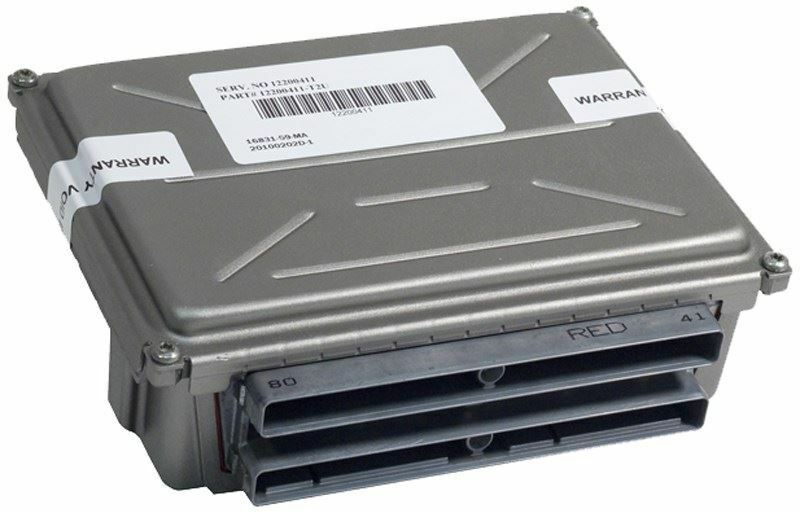Restore Peak Performance to Your 2001-2002 Oldsmobile Aurora
Is your Aurora, or another GM vehicle from this era, suffering from frustrating and unpredictable issues? As a technician with over two decades of experience under the hood, I’ve seen firsthand how a failing Powertrain Control Module (PCM) can wreak havoc. You might be dealing with a persistent Check Engine Light, sudden stalling, rough idling, or transmission shifting problems that seem to have no other cause. These aren’t just annoyances; they are signs that the very brain of your vehicle’s engine management system is compromised.
This isn’t just a replacement part; it’s a complete, ready-to-install solution. We take the guesswork and extra expense out of the equation by pre-programming this PCM with the latest GM software updates, specifically matched to your vehicle’s VIN. This critical step ensures all factory parameters for fuel delivery, ignition timing, and transmission control are perfectly calibrated for your car, restoring the smooth, reliable performance you remember. A faulty module can lead to failed emissions tests and poor fuel economy, costing you money and time. This direct-fit 2001-2002 Aurora PCM is the definitive answer to those problems.
From the Diagnostic Bay: The Ghost in the Machine
I remember a 2002 Pontiac Grand Am with the 3.4L V6 that came into my shop. The owner had already replaced the throttle position sensor and the idle air control valve, chasing a stubborn intermittent stalling issue and a P0601 code (Internal Control Module Memory Check Sum Error) that kept coming back. He was frustrated and out of money. After confirming the wiring and sensors were good, we pinpointed the PCM. The internal circuitry was failing, causing erratic signals that mimicked other component failures. Once we installed a properly programmed PCM like this one, the car ran perfectly. It’s a classic case I’ve seen dozens of times on these GM platforms—the problem isn’t the parts being commanded, but the commander itself.
Common Signs of a Failing PCM
- ✔ Check Engine Light is on with communication-related codes (e.g., P0601, P0606) or multiple random sensor codes.
- ✔ Your vehicle fails to start or stalls unexpectedly while driving.
- ✔ Noticeable decrease in fuel efficiency for no apparent reason.
- ✔ Harsh or erratic automatic transmission shifting.
- ✔ The engine runs rough, misfires, or hesitates during acceleration.
- ✔ Failure to pass state emissions testing.
A Straightforward Guide to Your PCM Installation
Replacing the PCM on these vehicles is a manageable job for a confident DIYer. Taking your time and following a logical process is key. This module is often located in the engine bay, sometimes within the air filter housing assembly for protection.
- Safety First: Always disconnect the negative terminal from your vehicle’s battery and wait at least 15 minutes for the system capacitors to discharge.
- Locate the Module: On most of these models, the PCM is found on the driver’s side of the engine compartment, near the firewall or integrated with the air cleaner box.
- Disconnect Connectors: Carefully release the locking tabs on the electrical harness connectors and pull them straight out. Never force them. Inspect the pins for any corrosion or damage.
- Remove the Old PCM: Unbolt the mounting screws or clips holding the module in place and remove it from the vehicle.
- Install the New PCM: Mount your new, pre-programmed PCM securely in the original location.
- Reconnect Everything: Firmly plug the electrical connectors back into the new module until they click into place. Reconnect the negative battery terminal.
- Final Steps: In some cases, a security relearn procedure or a Crankshaft Variation (CASE) relearn may be needed. This can often be done without a scan tool. Consult a service manual for your specific vehicle’s procedure. Start the engine and verify the Check Engine Light is off and the vehicle runs smoothly.
Will This Fit My Vehicle? Verified Compatibility
This module, part number 09360210, is a direct replacement for service numbers 12209614 and 12202600. It is guaranteed to fit the following vehicles. Please confirm your specific engine and options.
- Alero: 2001-2003 (3.4L)
- Aurora: 2001-2002 (3.5L)
- Aztek: 2001-2003
- Century: 2001-2002
- Grand Am: 2001-2003 (3.4L)
- Grand Prix: 2001-2003 (3.1L)
- Impala: 2001-2003 (3.4L)
- Intrigue: 2001-2002
- Lumina Car: 2001
- Malibu: 2001-2003
- Montana: 2001-2002
- Monte Carlo: 2001-2003 (3.4L)
- Regal: 2000-2002
- Rendezvous: 2002-2003
- Silhouette: 2001-2002
- Venture: 2001-2003
Frequently Asked Questions
How does the VIN programming work?
After you complete your purchase, you will need to provide us with your vehicle’s 17-digit VIN. Our technicians will then load the latest GM-certified software for your exact vehicle onto the module before it ships. This ensures it works correctly right out of the box.
Is this a simple plug-and-play installation?
For most vehicles, yes. Because it arrives programmed, you just need to install it. However, some GM vehicles require a security relearn procedure (often called Passlock or Passkey) to allow the car to start. This procedure can typically be done without special tools and instructions are widely available online.
Do I need to perform a CASE relearn?
A Crankshaft Position System Variation (CASE) relearn may be necessary to clear a P1336 trouble code and ensure the computer accurately detects misfires. While some high-end scan tools can perform this, it is not always required for the vehicle to run properly.
What if I have the wrong part number?
This module replaces several part numbers, including 12209614 and 12202600. The key is matching your vehicle model, year, and engine. The VIN programming process ensures compatibility even if your original module’s number is slightly different.
Will this fix my transmission shifting problems?
The PCM controls both engine and transmission functions. If your shifting issues are caused by faulty electronic commands from a failing PCM, then yes, this part is very likely to solve the problem. It cannot fix internal, mechanical transmission failures.


